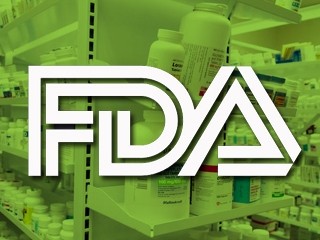Warning letter lawsuit highlights shared responsibility for bringing compliant products to market

The lawsuit pits TRC Associates, a Nevada-based distributor, against the manufacturer of a product line called Cellfood. The lawsuit follows on the heels of an FDA warning letter received by the exclusive US distributor of the product, Lumina Health Products of Sarasota, FL.
In the lawsuit, TRC claims Lumina committed fraud, unfair business practices, and false advertising. The lawsuit even throws in a claim of a violation of the federal racketeering law for good measure.
At issue is the large amount of Lumina’s products that TRC now holds, products that the company presumable can’t sell in the wake of the warning letter. The lawsuit states that TRC has been doing business with Lumina since 2007, and in that time has purchased more than $700,000 worth of products from Lumina.
Warning letter to Lumina
In the warning letter sent on August 1 to Lumina, FDA leads off with Lumina’s numerous violations of approved claims language, which put the company’s products into the realm of unapproved new drugs. The company’s promotional literature included statements such as the product worked as well “as pharmaceutical treatments for pain and inflammation” and “Cellfood enabled them (asthma sufferers) to use inhalers less frequently.” The warning letter also cited the company for GMP violations, including the familiar lack of proper record keeping and also cited the firm for labeling deficiencies.
Lumina Health Products states: "The suit is baseless and frivolous. Lumina is—and will continue to be—in compliance with cGMP law pertinent to our role as Holder and Distributor of dietary supplements."
The lawsuit includes a lengthy description of the provenance of the Cellfood formula, which is based on deuterium sulfate. TRC alleges that deuterium sulfate, from a chemical activity standpoint, is indistinguishable from sulfuric acid. TRC claims it was misled by Lumina as to the certification of its facilities and the ingredients and efficacy of its products.
With it’s long history of doing business with Lumina, how is it that TRC is only now claiming to have been misled? Could the warning letter have been a trigger, as it has for so many other lawsuits filed in the state of California?
“I found it interesting that a large section of the complaint focused on FDA’s warning letter and the fact that after the company got a warning letter it continued to sell the product,” said Justin Prochnow, a Denver-based attorney with the firm Greenberg Traurig.
“Plaintiff’s lawyers seem to think that an FDA warning letter is evidence that someone has violated the law. It's simply not. A warning letter is FDA’s opinion, but it’s nothing more than that. Now, I’m not saying that a lot of times it isn’t a correct opinion,” Prochnow told NutraIngredients-USA.
Shared responsibility
In TRC’s case, what could a reseller or distributor reasonably be expected to know about the products it gets from manufacturers? Can a reseller rely on a manufacturer’s representations about the legality of a product’s ingredients and claims much as the manufacturer might try to rely on a certificate of analysis on the ingredients it procures from suppliers? Or is a reseller or retailer expected to vet those products and claims in much the same way that a manufacturer is expected to test incoming ingredients?
“From a regulatory perspective, everyone in the chain of supply has the obligation to put a good product out on the market. FDA would look at it more in terms of manufacturers. Is a manufacturer going to be on the hook for a product that when it comes to them is clearly not a compliant product? Does the manufacturer have to investigate every claim? Proabably not. But if they get a product called Cancer Be Gone, FDA would say you must have known that this is clearly a noncompliant product, and yet you did it anyway,” Prochnow said.
"For the retailer, it's kind of the same thing. FDA is putting increased burden on all companies in the manufacturing chain to make sure that products are compliant,” he said.
To read the text of the lawsuit, click here. FDA's warning letter to Lumina can be found here.









